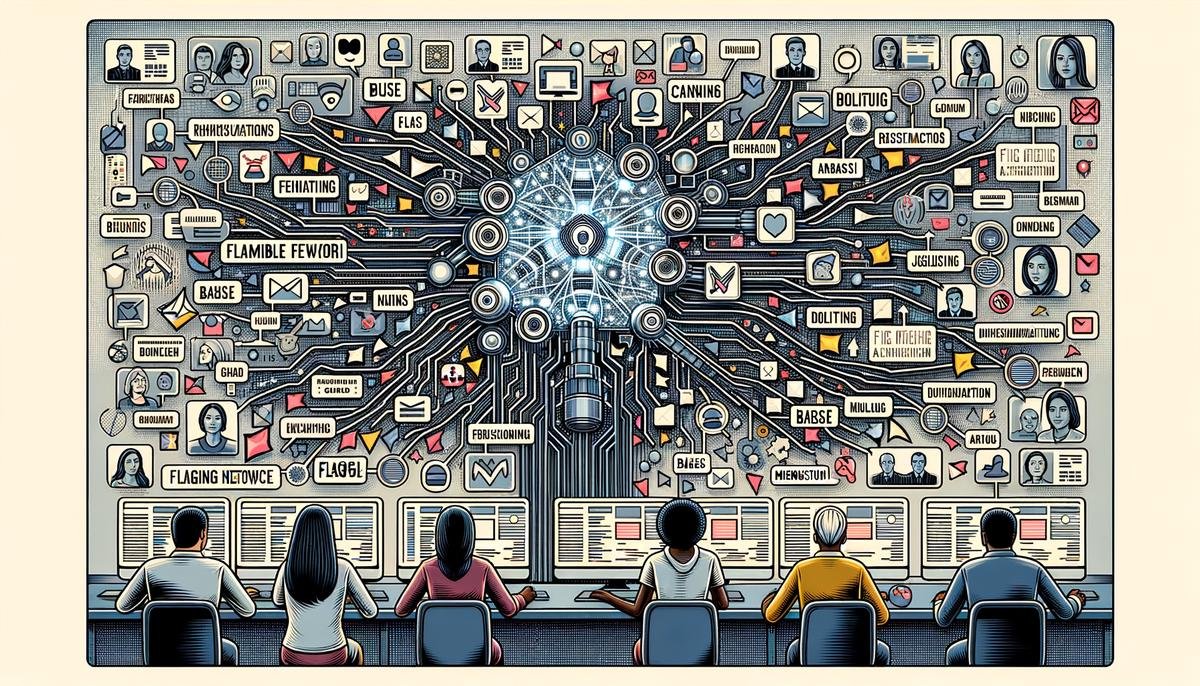Automated News Writing
AI is revolutionizing newsrooms by enhancing speed and efficiency. These systems excel at data-driven reporting, processing vast amounts of information like sports scores or financial reports into readable articles. This allows journalists to focus on stories that require a human touch.
However, concerns persist about AI replacing human journalists, especially for routine stories. While AI can present facts, it lacks the nuance a human reporter captures. Trust is another issue, as news credibility might suffer if the distinction between human and machine reporting becomes unclear.
On the positive side, AI frees journalists to pursue investigative stories. News organizations must find ways to embrace AI's strengths while maintaining their human-centered approach, using technology as a tool, not a replacement.
Bias and Misinformation Control
AI plays a crucial role in tackling bias and misinformation in journalism. These algorithms can detect biases that might escape a human editor's notice, acting as an impartial referee in the newsroom. AI's role in fact-checking is also valuable, quickly cross-referencing sources and checking for inconsistencies.
The capacity of AI to flag potential misinformation before it gains momentum helps maintain the integrity of information shared with the public. However, it's important to remember AI's limits:
- Algorithms are only as good as the data and rules they're based on
- They lack the intuition that experienced journalists develop
- Human oversight is necessary to refine AI's efforts
A balanced partnership between AI and human journalists is essential in combating misinformation effectively.

Personalization of News Consumption
AI is transforming how we consume news by personalizing content to match individual preferences. These algorithms analyze reading habits and interests, curating a news stream designed to keep users engaged. This approach benefits readers who no longer need to search through countless articles to find something interesting.
However, there's a risk of creating echo chambers—a news environment that reflects only one's views without introducing new perspectives. This can:
- Hinder diverse thought
- Encourage polarization
Balancing personalized content while promoting exposure to diverse viewpoints remains a significant challenge for news organizations using AI.
Operational Efficiency in Newsrooms
AI is redesigning newsroom efficiency by optimizing workflows and easing pressure on human resources. Tasks like transcribing interviews are now done quickly by AI, allowing journalists to focus on crafting insightful stories. AI tools also manage content workflows, tracking each piece from initial draft to final release.
AI's impact extends to operational costs, allowing for leaner, more cost-effective operations. While AI can't replace human insight in journalism, its role in supporting tasks allows newsrooms to allocate resources more strategically. However, integrating AI into newsroom processes requires a careful balance to ensure that technology supports rather than replaces human creativity and judgment.
Challenges and Ethical Concerns
The integration of AI in journalism presents challenges and ethical questions:
- Potential loss of jobs as AI takes over routine tasks
- Unclear intellectual property rights regarding AI-consumed and produced content
- Reliance of news organizations on tech companies, potentially hindering independence and innovation
- Maintaining trust and transparency in reporting as algorithms potentially take on roles traditionally reserved for human judgment
Addressing these challenges requires focusing on the values that journalism holds dear, ensuring that AI serves storytelling rather than leading it astray.

As journalism embraces new technologies, the partnership between AI and human creativity is crucial. This collaboration aims to enhance storytelling, allowing for a more efficient approach to delivering news. The future of journalism lies in balancing technology with the human touch.
- Squires JD. The most profitable legal business in America. Washington Journalism Review. 1990.
- Medill School of Journalism, Media, Integrated Marketing Communications. State of Local News Report. 2023.
- UBS. ChatGPT user growth analysis. 2023.
- Rosenstiel T. Interview on AI in journalism. University of Maryland. 2024.




